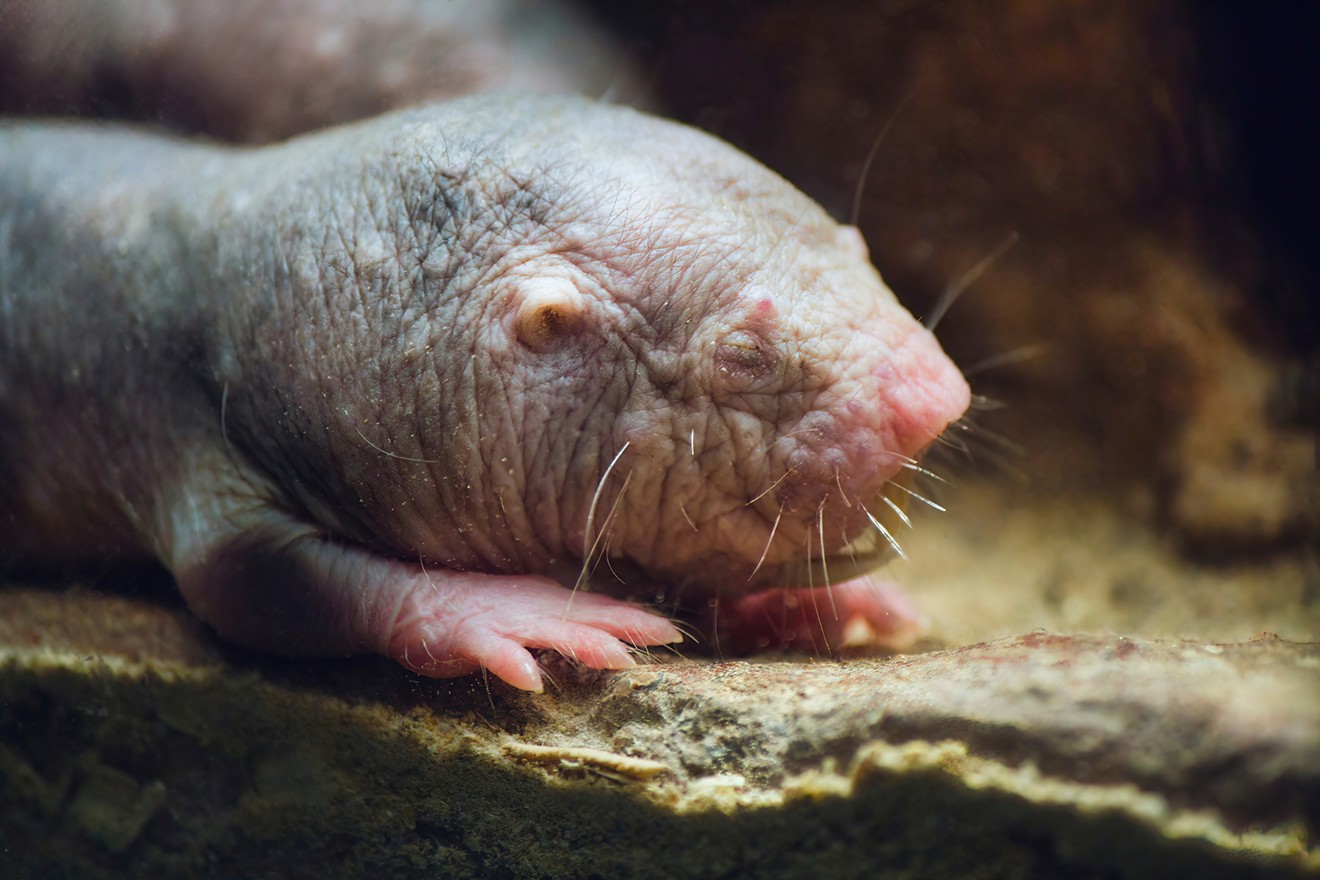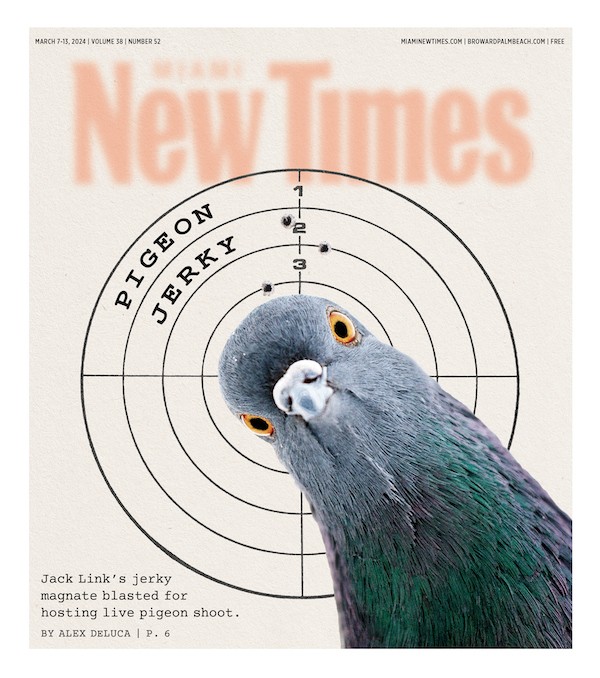An animal advocacy group is demanding that federal regulators issue a "maximum violation" against the University of South Florida for mistakenly burning a group of caged lab animals to death in a research facility.
Stacy Ellison, research analyst for Stop Animal Exploitation Now, filed a complaint with the U.S. Department of Agriculture (USDA), saying the agency should step in and investigate after the university took insufficient action to address the deaths.
"It’s not being monitored at all," Ellison tells New Times. "These animals suffered, burned, and died. That should call for a maximum violation."
University Comparative Medicine staff found the group of naked mole rats scorched in their metal cage on the morning of February 5 next to a portable space heater that had been left on all night, according to a letter from University of South Florida (USF) Office of Research.
A technician had moved the heater "too close to a rack when mopping [and] didn’t move it back," the initial incident report states.
"The cause of death was determined to be overheating… with no remote monitoring," Sylvia Thomas, interim vice president for the office, stated in the letter addressed to the National Institutes of Health.
During colder months, the heaters were used in the naked mole rat housing room to maintain a temperature above 80 degrees, as outlined by the Comparative Medicine department's operating procedures. However, the lab procedures did not specify that the temperature should be manually monitored overnight.
Two procedures were revised a month after the incident, one titled Animal Health and Environmental Surveillance, and another titled, Naked Mole Rat Husbandry, to include the seemingly obvious requirement that space heaters need to be "sufficiently distant" from animal enclosures.
The letter also noted that the university's building management found that the thermostat in the room was faulty.
Ellison filed the grievance against the Tampa university with the USDA on June 19 for what she believes are two violations of the Animal Welfare Act, which regulates the treatment of animals used for research and entertainment.
The complaint argues the University of South Florida violated federal code on personnel qualifications and animal handling in research facilities.
Ellison hopes the agency will issue the maximum fine of $12,722 per violation, per animal. With five deaths and two possible violations, USF could be fined up to $127,220 by the USDA if the investigation finds they were non-compliant with the act.
"These animals suffered under excessive heat long enough that they were cooked to death," Ellison says in the complaint. "I must insist that your office institute an immediate investigation and begin the process of issuing the maximum fine."
The University of South Florida provided a statement to New Times saying it "took the appropriate steps and immediately notified federal agencies regarding the incident."
"The U.S. Department of Health & Human Services’ Office of Laboratory Animal Welfare was satisfied with the corrective actions steps and has determined no further action is necessary," the university says. "USF believes in the respectful and ethical treatment of animals in research. We have a vigorous training and review process and will continue to abide by all state and federal laws and guidelines."
On February 6, a day after the five rats were found dead, Comparative Medicine outlined a plan to the university's Institutional Animal Care and Use Committee to better safeguard lab animals. The department said it would discontinue the overnight use of unmonitored space heaters, and that it had ordered Wi-Fi-enabled heaters that could be controlled remotely and monitored in emergency situations.
Two days after the deaths, Comparative Medicine "retrained the responsible staff member and associated staff in the use of space heaters, situational awareness and the importance of environmental monitoring to animal welfare," Thomas stated in the letter.
Another section of the letter advises that keeping temperature monitoring devices in the animals' cages would not be feasible.
"Since naked mole rats are extremely sensitive to disturbances inside the cage, placement and frequent assessment of temperature measuring devices inside the cage is not practical," the letter reads.
Ellison believes this contradicts the university’s new preventative plan.
"They kind of do that very circular talk," Ellison says.
Space heater accidents are a common cause of damage and injury in the U.S., igniting an estimated 1,700 fires annually. The devices emit high heat in a concentrated area, with the potential to scorch anything placed too close to their vents. Over a four-year monitoring period, the National Fire Protection Association found that space heaters were the cause of 80 percent of heating-related household deaths.
Animals
Animals Accidentally "Cooked to Death" in University of South Florida Lab
"I must insist that your office institute an immediate investigation and begin the process of issuing the maximum fine."

Naked mole rats, AKA "sand puppies," are native to eastern Africa. The mouse-sized, hairless creatures are bred en masse for biomedical research.
Photo by Tennessee Witney/Getty Images
[
{
"name": "Editor Picks",
"component": "17482312",
"insertPoint": "4",
"requiredCountToDisplay": "1"
},{
"name": "Inline Links",
"component": "18711090",
"insertPoint": "8th",
"startingPoint": 8,
"requiredCountToDisplay": "7",
"maxInsertions": 25
},{
"name": "Air - MediumRectangle - Combo - Inline Content",
"component": "17482310",
"insertPoint": "8th",
"startingPoint": 8,
"requiredCountToDisplay": "7",
"maxInsertions": 25
},{
"name": "Inline Links",
"component": "18711090",
"insertPoint": "8th",
"startingPoint": 12,
"requiredCountToDisplay": "11",
"maxInsertions": 25
},{
"name": "Air - Leaderboard Tower - Combo - Inline Content",
"component": "17482313",
"insertPoint": "8th",
"startingPoint": 12,
"requiredCountToDisplay": "11",
"maxInsertions": 25
}
]







